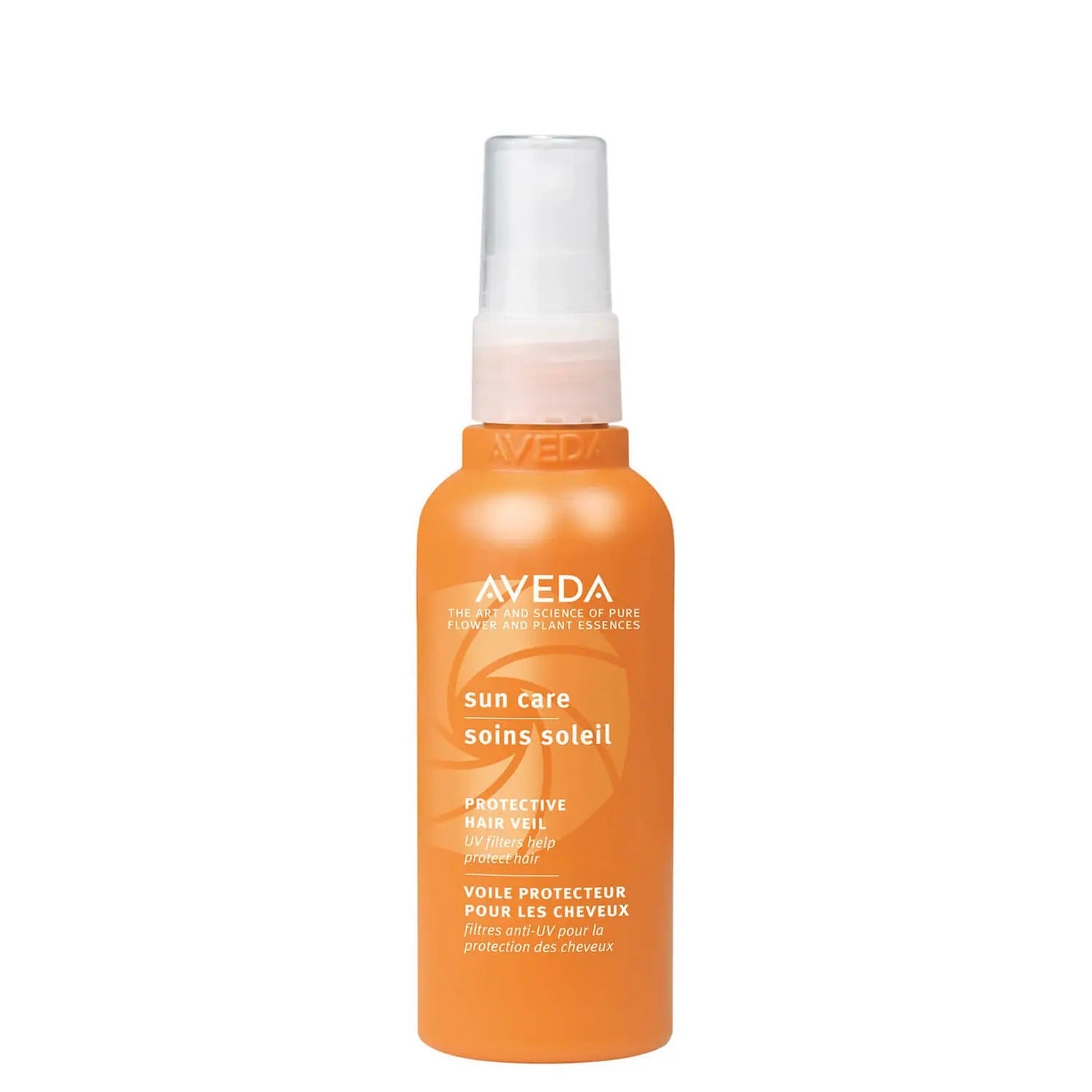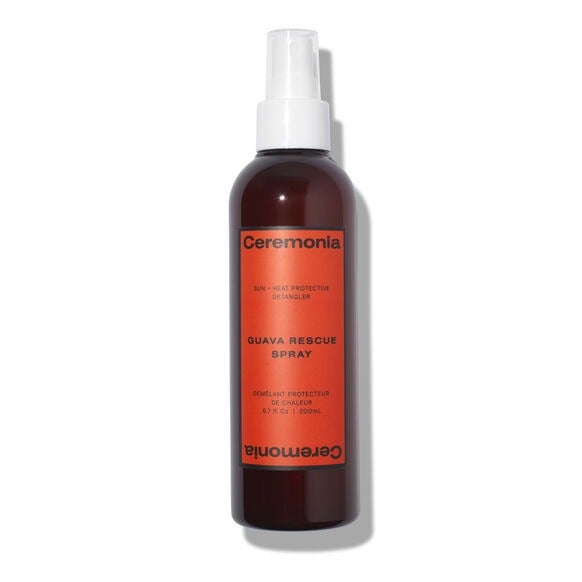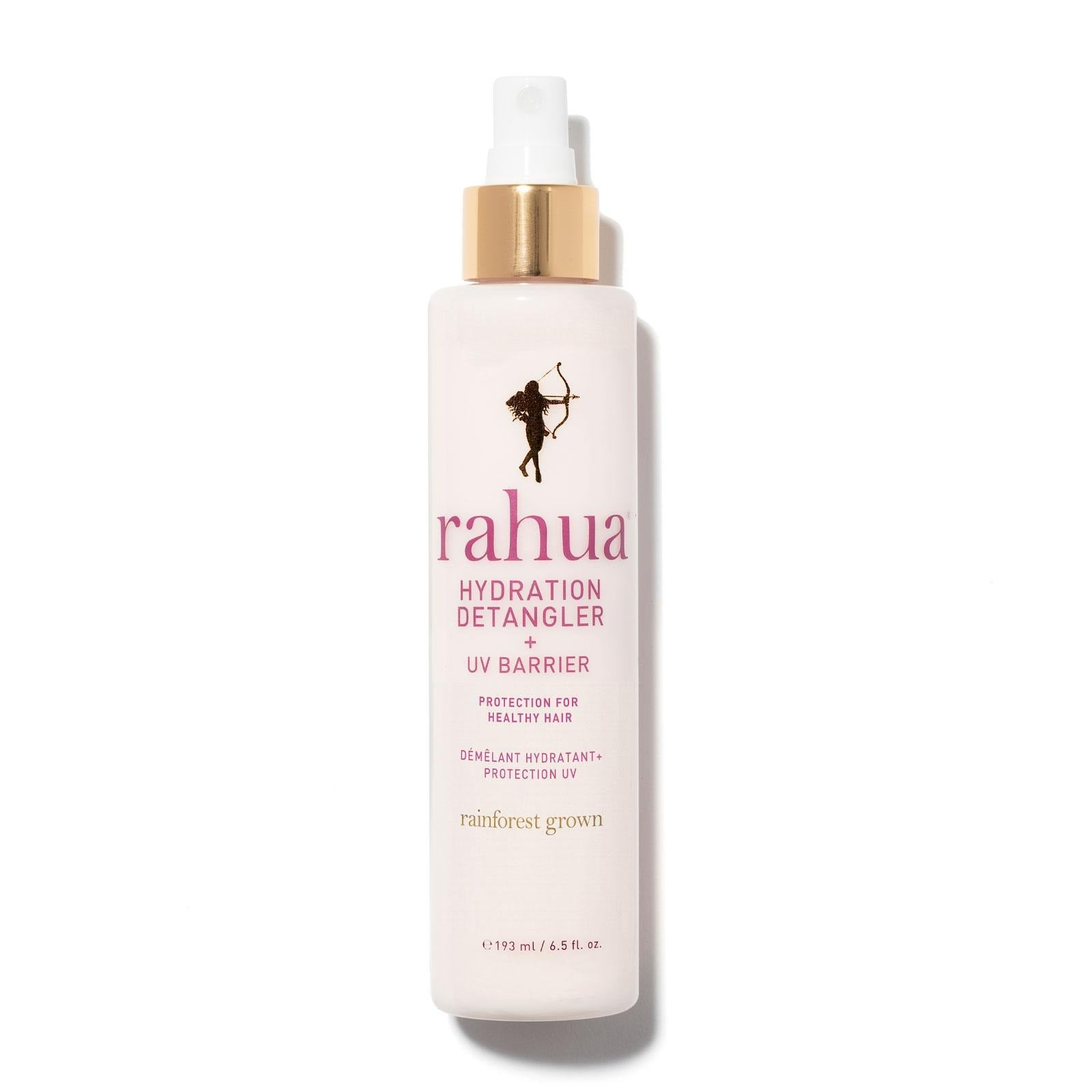Hair Lightening Sprays Are Proving Controversial Among Derms & Here’s Why
Photographed by Rocky Nolan.
Welcome to Sun Blocked, Refinery29’s global call-to-action to wake up to the serious dangers of tanning. No lectures or shaming, we promise. Instead, our goal is to arm you with the facts you need to protect your skin to the best of your ability, because there’s no such thing as safe sun.
In 2023, it's easier than ever to keep highlighted hair healthy, not bleached to oblivion. You want to be a little blonder? Go ahead, have more fun: A good colourist will know how to best pace the lightening process to maintain the integrity of the hair, and will typically prescribe an at-home bond-building routine from a brand like Olaplex or K18 to keep your strands silky and strong.
AdvertisementADVERTISEMENT
That's the right way to go blonde for summer — but, for better or worse, it's not the only way. Maybe you're spending your PTO on a beach, feeling that nostalgic itch to sit out in the sun with your hair drenched in the juice of a few lemons you originally bought for drinks or, more pointedly, a "blonding" spray you grabbed at the drugstore that seemed legit (because it was on display right next to the sunscreen). It's easier and more cost-effective than booking in with your colourist, so why not?
You already know that a Sun-In-style product can turn hair a brassy, undesirable orange, but the risks don't end there. Treating your hair with lemon juice or hydrogen peroxide (which is what you'll find in most spray lighteners) and exposing it to the sun can result in serious damage to the hair and skin, beyond brassy roots and dry ends.
"In general, I am wary of anyone soaking up more of the sun's rays to lighten their hair," says Noreen Galaria, MD, a board-certified dermatologist and founder of Inner Glow vitamins. "Most people never bother to spot test [hair lighteners] before application, and we do see patients coming in with reactions in the summer months." DIY hair lightener-induced chemical burns are a real thing and, to add insult to injury, your strands may not even turn out "sun-kissed" as promised. Abby Haliti, expert colourist and the founder of New York City's Abby Haliti Color Studio, says that in her experience, hair often looks "blotchy and uneven" after using a sun-activated lightener.
AdvertisementADVERTISEMENT
That's not to say you should never lighten your hair, or never leave home without a hat, for that matter. Instead, we're unpacking how these lighteners actually work, what to look out for on an ingredient list, and why you may be better off grabbing a UV-protective leave-in instead.
How does hair lightener work?
Let's start with the basics. Like our skin, our hair contains melanin, which are pigment cells. The type of melanin you're born with determines your hair colour (an abundance of eumelanin produces dark black or brown hair, while an abundance of pheomelanin produces light hair, like reds and strawberry blondes). Over time and with age, our hair's natural melanin production slows down, which causes it to turn grey or white. If you're lightening your hair by burning it with a sun activator, you're inducing premature melanin breakdown and degrading the hair pigment.
The specific way your hair changes as a result of using a hair lightener will depend on your natural pigmentation. "Because light hair has the least melanin, these sprays work best at breaking down the melanin in blondes or light brunettes," says Dr Galaria. This is why natural blondes will use a hair lightener and experience a lifted result faster than someone with dark hair. She adds that even without a lightener, unprotected sun exposure will degrade the melanin in the hair; when a lightener is introduced, the effect is amplified. "The sun will always lighten the hair, but ingredients in lighteners are meant to enhance or speed up this process to give you that 'sun-kissed' look faster."
AdvertisementADVERTISEMENT
Which ingredients cause hair lightening?
For what it's worth, hair lighteners are not synonymous with bleach. "Hair lighteners are designed to lift the colour of hair by a few shades, whereas bleach is used to remove all colour from hair completely," explains Abby. "However, both hair lighteners and bleach contain hydrogen peroxide, which can strip the hair of its natural oils and cause dryness."
The two main ingredients you'll likely find at the top of a hair-lightener ingredient list are lemon juice (also called citrus or citric acid) and hydrogen peroxide. Both are sun-activated, oxidising the hair when exposed to heat and UV light. Citric acid has a pH of 2, which is very low (acidic) when compared to the natural pH of hair, which is 4.5 to 5.5. When lemon juice is applied to the hair, either alone or alongside other ingredients like hydrogen peroxide, it acts as a natural bleaching agent. When the sun is introduced to the equation, a more dramatic chemical reaction occurs.
"Lemon juice can be activated by heat alone," explains Dr Galaria, "but when combined with UV light, [the process] will accelerate." If you're using lemon juice on your hair and sitting in the sun, it will take a few applications to see results — and you'll be drying your hair out every time. "Remember that each exposure is deteriorating your hair's cuticle," says Dr Galaria.
Hair pro Kevin Hughes tells Refinery29 that peroxide is a lot harsher on strands than lemon juice, but works the same way: It's activated by heat and UV to break down melanin and lighten the hair. "While it's effective, it can cause a lot of dryness and a straw-like texture to the hair because the UV rays break down keratin in your hair, causing it to be weaker," explains Dr Galaria. It shouldn't be used above 3% and should only be applied to a few selective strands — and far, far away from the scalp (that goes for lemon juice as well). "Hydrogen peroxide can be irritating to the scalp, so there is an increased risk of sunburn," says Dr Galaria.
AdvertisementADVERTISEMENT
Another less damaging — but also less effective — plant-derived hair lightener you may see in blonding sprays is chamomile or chamomile extract, which contains a compound called apigenin. It is gentler than both lemon juice and hydrogen peroxide but, again, is less likely to yield noticeable results.
Why are hair lighteners controversial?
According to Dr Galaria, the reason hair-lightening products are problematic is that they can easily and inadvertently cause a chemical burn called phytophotodermatitis. "I see many patients come in with it in the summer," Dr Galaria says. "It's a reaction that occurs when the skin is exposed to lemons or oranges. The scalp can definitely be affected, as can your hands or parts of your face where you inadvertently dripped some of your lightening spray. In severe cases, blisters and hyperpigmentation can occur from this chemical burn."
“
"The scalp can definitely be affected, as can your hands or parts of your face where you inadvertently dripped some of your lightening spray. In severe cases, blisters and hyperpigmentation can occur from this chemical burn."
Noreen Galaria, MD, board-certified dermatologisT
”
Both colourists and dermatologists agree that these hair lighteners are problematic for our hair health as well. "These ingredients cause a permanent chemical reaction to take place inside your hair," explains Dr Galaria. "The colour has actually been lifted out, and over time the hair will look brassier or more orange." If you're looking to reverse the sun-induced damage, most colourists recommend a toner. If you're blonde, that might look like a purple shampoo — but if you're really upset with the results, you'll need a corrective colour procedure to fix it (so much for cost effective).
Abby asks all of her colour clients to avoid lighteners. "Hair lighteners can be damaging to both the hair and scalp if used improperly," she says. "The [ingredients] in hair lighteners can strip the hair of its natural oils and moisture, leaving it dry and brittle."
AdvertisementADVERTISEMENT
Are there any sun-safe hair lighteners?
Now, it's a little confusing that sun-activated hair lighteners are controversial, yet there are sun-care brands and reputable hair-care brands offering them on the market. So are any of them truly safe? According to Dr Galaria, a sun-safe, UV-activated hair lightener is an oxymoron — these products only work when the hair is exposed to the sun, so there's inherent risk that comes with using them.
However, there are some formulations that are safer than others. To put the ingredients in perspective, lots of popular hair lighteners contain a combination of lemon juice and hydrogen peroxide. The newer formulas are all very similar. "Most have lemon juice and hydrogen peroxide, though some [brands] have tried to include more moisturising ingredients to protect the hair shaft from becoming as damaged," says Dr Galaria.
While no hair lightener is without flaw, the best-for-you ones will be formulated with low concentrations of hydrogen peroxide or without it — so look for "peroxide-free" on the label. Colourist Kieron Fowles says the only formula they recommend is Oribe Bright Blonde Sun Lightening Mist, £37, which is peroxide-free. Dr Galaria adds that some brands substitute vinegar for lemon juice, but just like lemon juice, vinegar is an acid with a low pH, so it comes with its own set of scalp-damaging risks when exposed to heat and sun, such as inflammation.
If you're curious about a specific formula, ask your colourist to weigh in. They know your hair and have experience with how lighteners impact it. "Since hair lighteners are powerful, I highly recommend seeking the assistance of a colour expert," Abby says.
AdvertisementADVERTISEMENT
How can I lighten my hair safely?
You already know that it's important to wear sunscreen on your face and body. Sitting in the sun doesn't only result in sunburn, but premature ageing and potentially even melanoma skin cancer. The same goes for your hair and scalp (which is skin, remember): Rather than risk it all on a sun-activated lightener, you're best advised to wear a hat or scalp sunscreen — there are some great spray and powder options — and a UV- and heat-protective spray on your roots through to ends to avoid dryness and breakage.
If you're really eager to avoid the salon and use a sun-activated lightener, be extremely careful not to touch the lightener to your skin or scalp — and always strand test first. "I have a teenage [patient] who really wanted to use a hair lightener because of a TikTok trend she saw," Dr Galaria explains. "After talking, we convinced her to do a test [strand] and to wear a hat to protect her scalp and just treat the ends of her hair that are exposed outside of her hat. She got the look she wanted without increasing the damage to her scalp."
So, while there are ways to mitigate risk, skipping sun-activated sprays altogether is the only way to play it completely safe. You might not come back from your island vacation with your hair "naturally" sun-kissed, but we can guarantee it will be healthier in the long run.
At Refinery29, we’re here to help you navigate this overwhelming world of stuff. All of our market picks are independently selected and curated by the editorial team. If you buy something we link to on our site, Refinery29 may earn commission.
AdvertisementADVERTISEMENT










